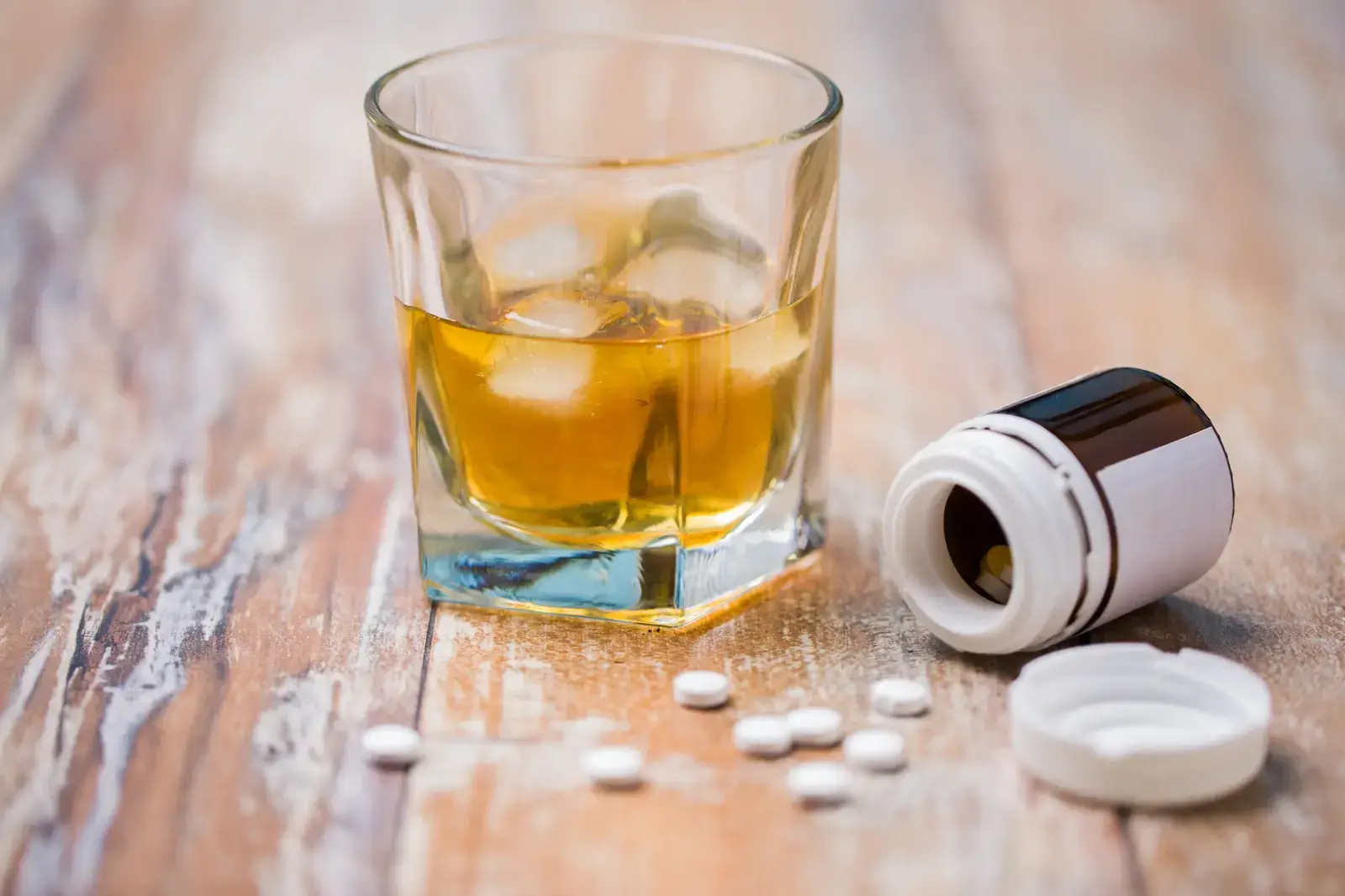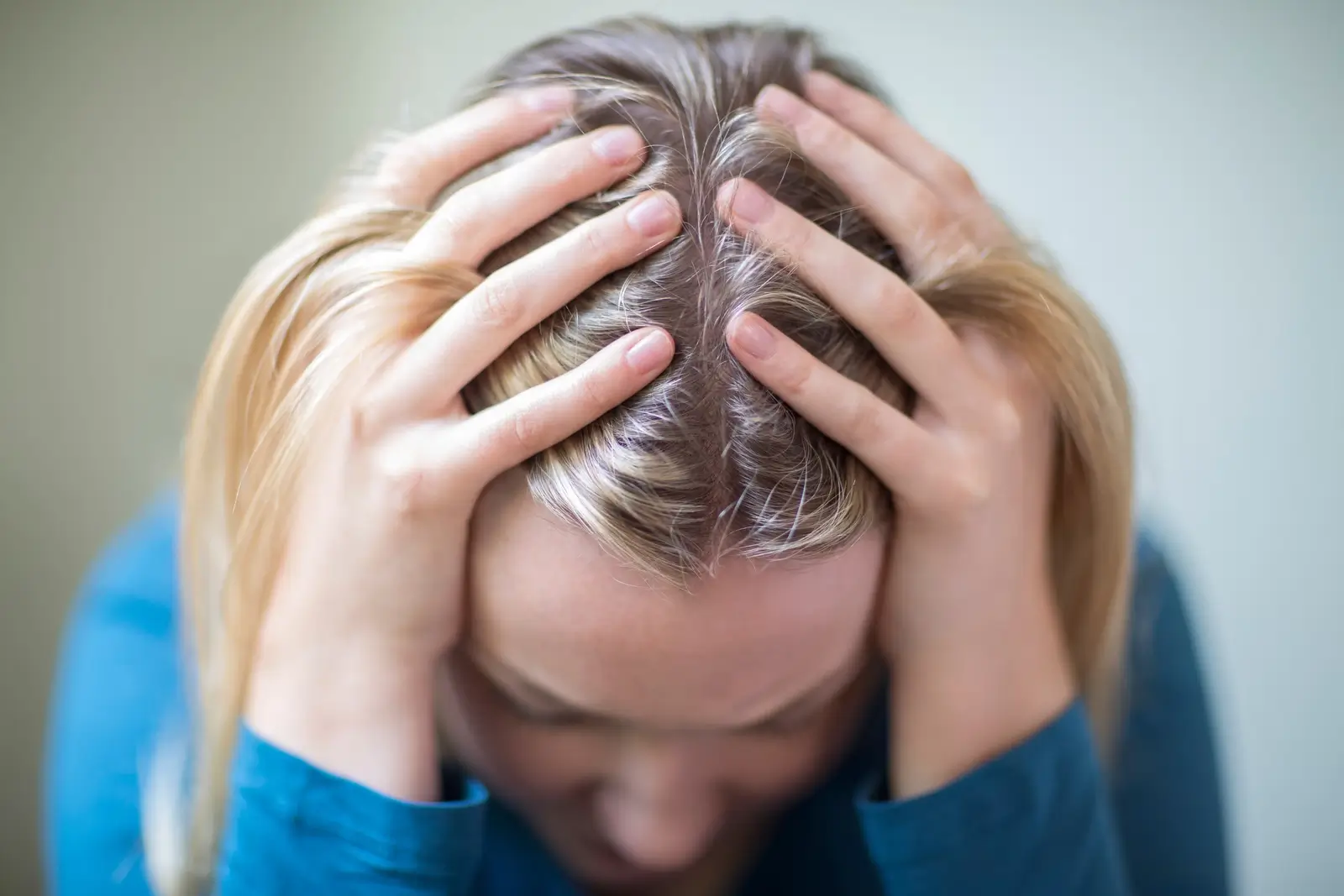What to Know About Cymbalta and Alcohol

What you will learn
- Cymbalta is an SNRI antidepressant that treats depression, anxiety, and chronic pain conditions by increasing serotonin and norepinephrine levels in the brain.
- Healthcare providers strongly advise against drinking alcohol while taking Cymbalta because the combination intensifies side effects and creates dangerous interactions.
- Mixing Cymbalta and alcohol can cause severe drowsiness, impaired coordination, liver damage, and worsened mental health symptoms.
- Even small amounts of alcohol can interact dangerously with duloxetine since the medication remains in the system continuously when taken daily.
Mixing Cymbalta and alcohol can create dangerous interactions that amplify side effects and increase health risks. Cymbalta, known generically as duloxetine, belongs to a class of antidepressants called serotonin-norepinephrine reuptake inhibitors (SNRIs) that affect brain chemistry and central nervous system function. When combined with alcohol, this medication can cause intensified drowsiness, impaired coordination, and potentially serious complications, including liver damage.
What is Cymbalta?
Cymbalta, known generically as duloxetine, is a prescription antidepressant that belongs to a class of medications called serotonin-norepinephrine reuptake inhibitors (SNRIs). The medication works by increasing levels of both serotonin and norepinephrine in the brain, two neurotransmitters that regulate mood, pain perception, and emotional well-being.
Healthcare providers commonly prescribe Cymbalta to treat major depressive disorder, generalized anxiety disorder, diabetic peripheral neuropathy, fibromyalgia, and chronic musculoskeletal pain. The medication typically comes in delayed-release capsules with doses ranging from 20 milligrams to 120 milligrams daily. Most people take Cymbalta once daily, and doctors usually start patients on a lower dose before gradually increasing it to achieve optimal therapeutic effects.
Cymbalta usually takes four to eight weeks to reach full effectiveness, though some people may notice improvements in energy, sleep, or pain levels within the first few weeks of treatment. The medication requires consistent daily use to maintain steady levels in the bloodstream, and doctors emphasize the importance of taking it at the same time each day for best results.
Common Conditions Treated With Cymbalta
Cymbalta treats a diverse range of mental health conditions and chronic pain disorders, making it one of the more versatile medications in psychiatric and pain management. Prescribers use duloxetine for both its antidepressant properties and its ability to reduce certain types of chronic pain through its effects on nerve pathways in the brain and spinal cord.
- Major depressive disorder: Persistent feelings of sadness, hopelessness, and loss of interest in daily activities
- Generalized anxiety disorder: Excessive worry and anxiety about everyday situations and events
- Diabetic peripheral neuropathy: Nerve pain in the hands and feet caused by diabetes complications
- Fibromyalgia: Widespread muscle pain and tenderness throughout the body
- Chronic musculoskeletal pain: Long-term pain affecting bones, joints, muscles, and connective tissues
- Stress urinary incontinence: Loss of bladder control during physical activity or exertion
Common Cymbalta Side Effects
Like all medications, Cymbalta can cause side effects that range from mild and temporary to more serious and persistent. Most people experience some side effects when starting duloxetine, though these often improve as the body adjusts to the medication over the first few weeks of treatment:
- Nausea: Stomach upset and queasiness, especially during the first few weeks
- Dry mouth: Reduced saliva production leading to mouth dryness
- Drowsiness: Feeling tired or sleepy during the day
- Constipation: Difficulty with bowel movements or infrequent stools
- Loss of appetite: Decreased interest in food and reduced hunger
- Dizziness: Feeling lightheaded or unsteady, particularly when standing up quickly
- Fatigue: Overwhelming tiredness and low energy levels
- Insomnia: Difficulty falling asleep or staying asleep through the night
- Sweating: Increased perspiration beyond normal levels
- Headaches: Ranging from mild discomfort to more severe pain
- Sexual side effects: Decreased libido, difficulty achieving orgasm, or erectile dysfunction
Is It Safe to Drink Alcohol While Taking Cymbalta?
Providers typically advise against drinking alcohol while taking Cymbalta due to safety risks and potential complications. Both duloxetine and alcohol affect the central nervous system, and combining them can intensify side effects like drowsiness, dizziness, and impaired coordination. This combination increases the risk of accidents, falls, and poor decision-making that could lead to dangerous situations. Alcohol can also worsen depression and anxiety symptoms, directly counteracting the therapeutic benefits that Cymbalta provides for mental health conditions.
The interaction between Cymbalta and alcohol also poses serious risks to liver health. Both substances require processing by the liver, and combining them places additional strain on this vital organ. People with existing liver problems face even greater risks, as their ability to metabolize both the medication and alcohol may already be compromised. Additionally, alcohol can interfere with Cymbalta’s effectiveness, potentially reducing its ability to manage depression, anxiety, or chronic pain conditions.
Potential Side Effects and Complications

Combining Cymbalta and alcohol creates a dangerous interaction that can amplify the side effects of both substances. The central nervous system depressant effects of alcohol can intensify when mixed with duloxetine, leading to more severe drowsiness, confusion, and impaired motor function than either substance would cause alone:
- Severe drowsiness: Extreme fatigue that can make driving or operating machinery dangerous
- Impaired coordination: Loss of balance and motor control increases fall and accident risks
- Confusion: Difficulty thinking clearly or making sound decisions
- Memory problems: Trouble forming new memories or recalling recent events
- Liver damage: Increased risk of hepatotoxicity from processing both substances simultaneously
- Worsened depression: Alcohol can counteract Cymbalta’s antidepressant effects and deepen symptoms
- Increased anxiety: Heightened feelings of worry and panic beyond baseline levels
- Dangerous blood pressure changes: Unpredictable fluctuations that can strain the cardiovascular system
- Respiratory depression: Slowed or shallow breathing that can become life-threatening
- Increased suicidal thoughts: Higher risk of self-harm ideation, especially in vulnerable populations
- Overdose risk: Greater likelihood of accidental overdose due to enhanced sedative effects
The Potential Long-Term Risks of Mixing Cymbalta and Alcohol
Regular consumption of alcohol while taking Cymbalta poses serious long-term health risks, particularly to liver function and overall mental health stability. Both substances require extensive liver processing, and chronic use of both together significantly increases the risk of hepatotoxicity, liver inflammation, and potentially irreversible liver damage. The liver’s ability to metabolize medications effectively can become compromised over time, leading to unpredictable drug levels in your system and increased side effects.
Long-term mixing can also result in tolerance to both substances, requiring higher amounts to achieve the desired effects and increasing the risk of overdose or dangerous interactions. Cognitive function may suffer permanently from the combined neurotoxic effects, including memory problems, difficulty concentrating, and impaired decision-making abilities. The cardiovascular system also faces increased stress from the combination, potentially leading to irregular heart rhythms, blood pressure fluctuations, and increased stroke risk.
Ready to get help for you or a loved one? Contact us
To ensure accuracy and quality, every contributor to the Alpas Wellness resource library undergoes a thorough evaluation of their experience, credentials, and achievements prior to publication.
Frequently Asked Questions About Cymbalta and Alcohol
How long should I wait after my last drink before starting Cymbalta?
Healthcare providers typically recommend waiting at least 24 to 48 hours after your last alcoholic drink before starting Cymbalta, though the exact timeframe depends on several factors, including how much you drank, your body weight, metabolism, and overall health status. Alcohol can remain in your system for hours after consumption, and starting duloxetine while alcohol is still present increases the risk of dangerous interactions.
Your doctor may recommend a longer waiting period if you’ve been drinking heavily or regularly, as your body needs time to clear all traces of alcohol and begin stabilizing without it. People with liver problems may need to wait even longer since their bodies process alcohol more slowly. It’s crucial to be completely honest with your healthcare provider about your drinking patterns so they can determine the safest timeline for starting treatment.
Can I have just one drink occasionally while taking Cymbalta?
Even small amounts of alcohol can interact dangerously with Cymbalta, making occasional drinking inadvisable while taking this medication. The interaction between duloxetine and alcohol doesn’t follow a predictable dose-response relationship, meaning that even one drink can potentially cause significant side effects in some people.
Alcohol enhances the central nervous system depressant effects of Cymbalta, leading to excessive drowsiness, impaired judgment, and coordination problems that could result in accidents or injuries. Additionally, any amount of alcohol can interfere with Cymbalta’s therapeutic effects, potentially worsening depression or anxiety symptoms that the medication is designed to treat. The medication remains in your system continuously when taken daily, so there’s no safe window for alcohol consumption.
Your doctor may make rare exceptions for special occasions, but this decision should only be made through direct consultation and never assumed to be safe without explicit medical approval.
What should I do if I accidentally drink alcohol while taking Cymbalta?
If you accidentally consume alcohol while taking Cymbalta, it is essential to be with another person who is capable of observing you for symptoms. Monitor closely for dangerous side effects and seek immediate medical attention if you experience severe symptoms. Watch for signs like extreme drowsiness, difficulty breathing, confusion, severe dizziness, or loss of consciousness, which could indicate a serious interaction requiring emergency care. Contact your healthcare provider or a poison control center immediately to report the incident and get specific guidance based on how much alcohol you consumed and when you took your last dose of Cymbalta.
Avoid driving, operating machinery, or engaging in any activities that require alertness and coordination until the alcohol has completely cleared your system and any interaction effects have subsided.
Will drinking alcohol make my depression or anxiety worse while on Cymbalta?
Alcohol consumption can significantly worsen depression and anxiety symptoms, even when taking Cymbalta, by interfering with the medication’s therapeutic effects and directly impacting brain chemistry. Alcohol acts as a central nervous system depressant that can counteract duloxetine’s ability to increase serotonin and norepinephrine levels, essentially working against the medication’s intended benefits.
Many people initially use alcohol to self-medicate anxiety or depression symptoms, but this creates a destructive cycle where alcohol provides temporary relief, followed by worsened mood symptoms as it leaves the system. The combination can also disrupt sleep patterns, increase irritability, and impair cognitive function, all of which contribute to poorer mental health outcomes.
[1] Mayo Clinic. (2025).
Duloxetine (Oral Route) Description and Brand Names – Mayo Clinic. Www.mayoclinic.org.
https://www.mayoclinic.org/drugs-supplements/duloxetine-oral-route/description/DRG-20067247 on August 20, 2025
[2] Cymbalta Dosage Guide. (n.d.). Drugs.com.
https://www.drugs.com/dosage/cymbalta.html on August 20, 2025
[3] How long does it take for Cymbalta to work? (n.d.). Drugs.com.
https://www.drugs.com/medical-answers/long-cymbalta-work-3565060/ on August 20, 2025
[4, 5] MedlinePlus. (2020, March). Duloxetine: MedlinePlus Drug Information. Medlineplus.gov.
https://medlineplus.gov/druginfo/meds/a604030.html on August 20, 2025
[6, 7] Duloxetine and Alcohol/Food Interactions. (n.d.). Drugs.com.
https://www.drugs.com/food-interactions/duloxetine on August 20, 2025
[8] Watson, A. R. (2022, June 19). Cymbalta interactions: Alcohol, medications, and other factors. Medicalnewstoday.com; Medical News Today.
https://www.medicalnewstoday.com/articles/drugs-cymbalta-interactions on August 20, 2025
[9] Kang, S.-G., Park, Y.-M., Lee, H.-J., & Yoon, B. (2011). Duloxetine-Induced Liver Injury in Patients with Major Depressive Disorder.
Psychiatry Investigation, 8(3), 269.
https://pmc.ncbi.nlm.nih.gov/articles/PMC3182394/ on August 20, 2025
[10] Huizen, J. (2022, March 28). Drug tolerance: What it is, how to deal with it, and more. Www.medicalnewstoday.com.
https://www.medicalnewstoday.com/articles/drug-tolerance on August 20, 2025